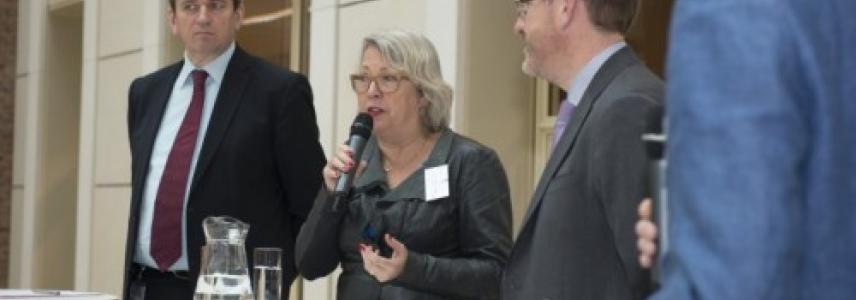Question time at CBI’s Expert Conference

The CBI Expert Conference in The Hague included a lively panel session in which speakers, from different sides of the development cooperation and private-sector development landscape fielded questions from CBI’s experts.
Trade
Prior to the panel session, Michael Roberts, Head of Aid for Trade at the World Trade Organization (WTO), informed the audience that trade plays a key role in probably all the WTO’s development goals. He spoke about connecting SMEs in the least developed countries to global value chains, focusing on changing market access opportunities into market presence.
Complexity
Between 2007 and 2015 there has been a growing focus on where new sources of growth are to be found, he said, an important one of which is SMEs. They constitute the highest number of economic operators in developing countries and are disproportionately important in terms of the employment and economic growth they drive. They are, however, characterised by a relatively high failure rate, or churn. Survival in their domestic market is difficult enough for many; if you add exporting to the equation it brings a whole new level of complexity. Citing the final assembly of a smartphone in China as an example, he described how the production of its component parts by SMEs in several developing countries in Asia represents intra-regional trade opportunities. But those exporting complexities are an obstacle, he cautioned.
Clarity and predictability
The Trade Facilitation Agreement proposed in 2013 tries to bring clarity and predictability to the complex situation faced by these SMEs, explained Roberts, who expressed hope the agreement will soon come into force. It deals, he continued, with issues such as the awareness of legislation, the publication and availability of relevant information, freedom of transit, particularly for land-locked countries, border-agency cooperation and import and export administration.
Questions
Afterwards, Michael Roberts was joined on the stage by Marianne van Keep, CSR Director of Verstegen Spices and Sauces and Robert Dijksterhuis, Manager of International Cooperation/International Programmes, Netherlands Enterprise Agency (RVO). Questions were invited from the floor by Moderator Bram Helvoirt of the University of Utrecht.
Standards and requirements
A key and recurring question was how the gap can be reduced between EU standards and requirements and the capabilities of SMEs in developing countries to comply with them. “After outlining different types of standards and requirements and why they are necessary, Roberts insisted that it is “work in progress” at the WTO. Van Keep, meanwhile, said it involves risk and risk reduction and is an issue her company would love to address, although it is relatively powerless to do so. Acknowledging that it remains a complex issue, Dijksterhuis explained that the first step is to organise SMEs so they are aware of the applicable standards and requirements, then seek advice from EU-based companies that invest in SMEs in developing countries.